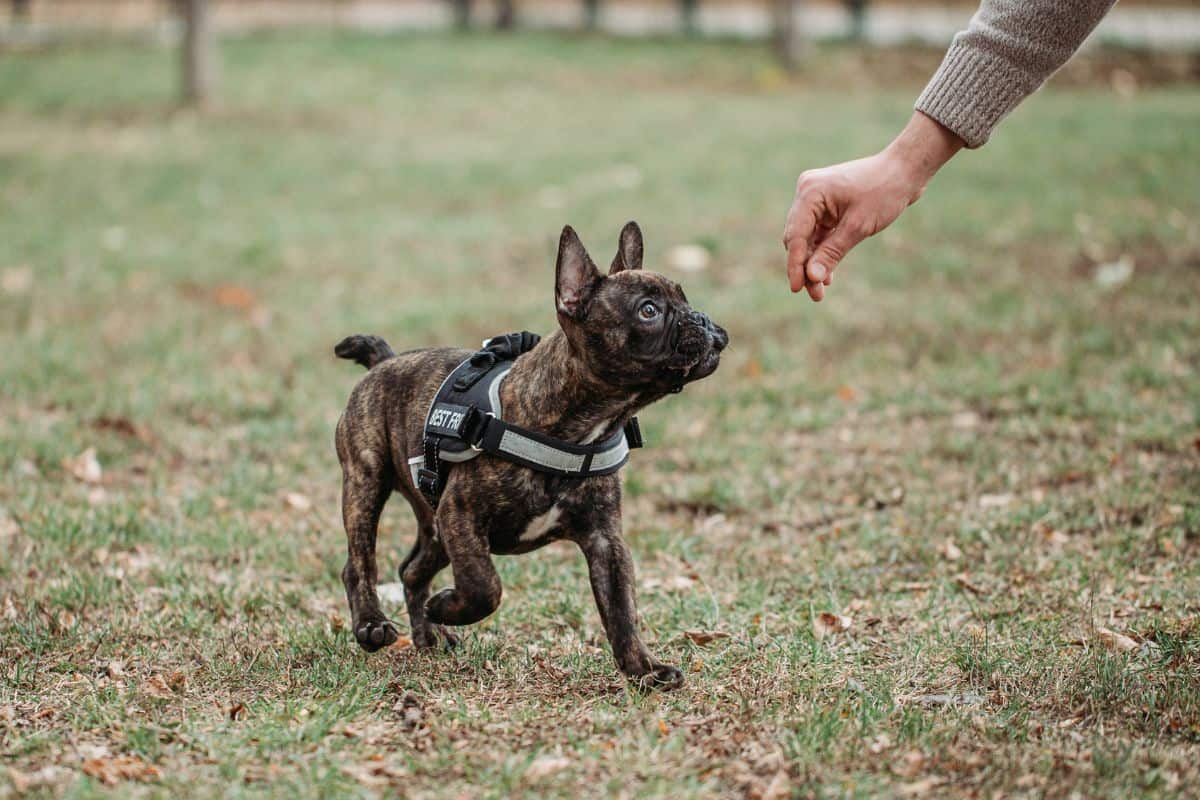How to Choose a Dog Trainer: Top 4 Factors to Consider

Are you ready to embark on an exciting journey of training your beloved furry companion? The key to achieving remarkable results lies in knowing how to choose a dog trainer. With so many options available, finding the perfect match may seem overwhelming. Fear not! This comprehensive guide on how to choose a dog trainer will equip you with the 4 main factors in choosing a dog trainer who can unlock your pup's true potential.
1. Qualifications and Education
As our cherished pets, dogs deserve the same meticulous care we give in choosing our own professional services. When selecting a dog trainer, two crucial factors stand out: the trainer's education and certification.
Education in dog training is essential as it provides the trainer with a deep understanding of canine behavior, learning theories, and animal welfare. Trained professionals can decipher complex communication cues from dogs, making the training more effective. This education also equips them with practical experience in handling different dog behaviors and understanding the significance of reward, discipline, and socialization in training.
Certification, on the other hand, attests to a trainer's skills and expertise. Organizations like The Academy of Pet Careers certify trainers who pass rigorous examinations and meet a standard of practice. This ensures that certified trainers keep pace with current research and developments in dog training. They also adhere to a code of ethics, guaranteeing humane treatment and professional conduct.
2. Dog Training Methodologies
Dog trainers employ various methodologies to train dogs, recognizing that choosing the right approach is crucial for both the owner's values and the well-being of the dog. Among the different training methods available, it is widely acknowledged that positive reinforcement training is effective and humane. This approach utilizes rewards and praise to encourage desired behaviors in dogs.
Positive reinforcement training focuses on rewarding the dog for exhibiting the desired behavior, such as sitting, staying, or coming when called. By associating the behavior with a positive outcome, such as treats, toys, or verbal praise, the dog learns to repeat the behavior to receive the reward. This method strengthens the bond between the dog and the trainer, while also promoting the dog's confidence and eagerness to learn.
Conversely, force-based training and balanced training rely on punishments and corrections to discourage undesirable behaviors. These methods involve using physical or verbal corrections, such as leash jerks, alpha rolls, or prong collars, to deter the dog from engaging in unwanted behaviors. However, it is important to note that such techniques can have adverse effects on a dog's mental and emotional well-being. Dogs subjected to punishment-based methods may become fearful, anxious, or even aggressive, as they associate training with negative experiences.
When selecting a dog training methodology, it is essential to consider not only the effectiveness but also the ethical implications and impact on the dog's well-being. Opting for positive reinforcement training can promote a harmonious and healthy relationship between the owner and the dog while ensuring the dog's mental and emotional welfare is prioritized.
3. Dog Training Services Offered
Consider the type of training services that best suit your needs:
Group training classes provide socialization opportunities for your pup and offer structured learning in a group setting. Classes are best suited for pet parents who are looking to be more hands on. Group classes tend to be more affordable than other options.
Private lessons offer one-on-one attention and customization to address specific behavioral concerns. This format is popular when addressing more complex behavioral problems that require more guidance and a private space.
Drop off training programs allow pet parents relieve a bit of the training burden by having an expert trainer set the foundation. In this model, the dog would be trained to a certain level of proficiency then lessons would be given to the pet parent to continue the training at home.
In-home training allows the trainer to work with your dog in their familiar environment creating a more comfortable experience.
Additionally, virtual dog training has gained popularity, offering convenience and accessibility through online platforms that allow an owner to be coached while training their own dog.
4. Dog Training Cost
Several factors can influence the cost of dog training. Firstly, the duration of the training program plays a role in determining the overall cost. Short-term programs, such as puppy training, tend to be less expensive compared to long-term advanced training programs that require more time and effort to teach complex skills.
Trainers with certifications and extensive experience may charge higher fees due to their expertise and successful track record. You should consider the balance between cost and quality because an unqualified trainer with little experience may be cheaper but can do more harm than good.
Additionally, the qualifications and experience of the trainer can affect the cost. Trainers with specialized certifications or extensive experience in working with certain breeds or specific training needs may command higher fees. It's important to consider the trainer's qualifications and track record when making a decision.
Lastly, the location and reputation of the training facility or trainer can influence the cost. Training services in more affluent areas or those with a stellar reputation may have higher fees. It's essential to research and compare different options to find the best balance between cost and quality of training.
What to Ask a Potential Dog Trainer
When interviewing potential dog trainers, ask questions to ensure they are the right fit for your needs.
Inquire about their training approach and philosophy, seeking trainers who prioritize positive reinforcement.
Ask about their experience and education, including any certifications or qualifications they hold, such as those obtained through The Academy of Pet Careers.
Learn more about the top 9 questions to ask a dog trainer.
How to Find a Dog Trainer
Finding a reliable dog trainer can be made easier through several avenues.
- Seek personal recommendations and referrals from trusted friends, family, or local pet owners.
- Conduct online research to read reviews and testimonials from previous clients.
- Reach out to local pet stores, veterinary clinics, and animal shelters, as they often have reliable recommendations.
Professional dog training organizations, like The Academy of Pet Careers, can also provide valuable resources and directories of certified trainers in your area.
Learning how to choose a dog trainer is an essential step towards unlocking your dog's full potential. By considering their experience, positive reinforcement methodologies, and the services they offer, you can ensure a harmonious and effective training journey for both you and your beloved companion. Remember to ask pertinent questions, seek referrals, and consult trusted resources like The Academy of Pet Careers. Embrace this exciting adventure, and witness the incredible transformation your dog can achieve with the right guidance and support.
Frequently Asked Questions
While it's possible to train your dog yourself, a professional trainer can offer expertise, guidance, and structured training programs tailored to your dog's needs. They can also address specific behavioral issues effectively.
The duration of dog training varies depending on factors such as the dog's breed, age, temperament, and the desired level of training. Basic obedience training may take a few weeks to several months, while advanced training can extend up to a year or more.
Yes, virtual dog training sessions can be highly effective. With the right technology and
a skilled trainer, virtual sessions provide convenience and flexibility while allowing you to receive professional guidance and support from the comfort of your own home.
Positive reinforcement training promotes a strong bond between you and your dog by rewarding desired behaviors with treats, praise, or play. This approach creates a positive learning environment, encourages good behavior, and fosters trust and mutual respect.
A reputable dog trainer typically has relevant certifications, qualifications, and extensive experience. They prioritize positive reinforcement methods, have positive reviews and testimonials, and are transparent about their training techniques and approach. The Academy of Pet Careers is a trusted resource to find reputable dog trainers.
 Author - Joseph Schifano
Author - Joseph Schifano
Joseph Schifano is the owner and President of The Academy of Pet Careers. With over 20 years of experience working in the pet field, managing large scale pet care businesses, he has experience in every facet of the industry. Joseph's focus is primarily on the business of pet care but his passion is in understanding animal behavior how a dog's brain works so we can improve the care we provide as pet professionals. He is a huge advocate for Pet Empowerment and Force Free training methods. Read more in Joseph's full bio.
